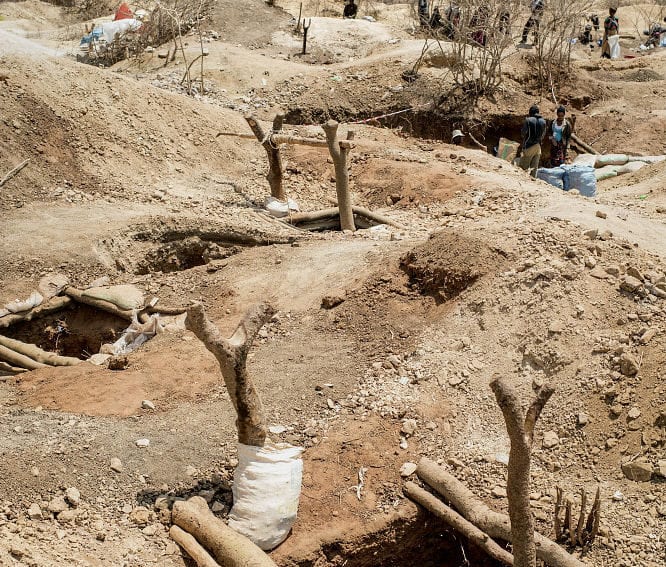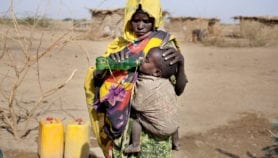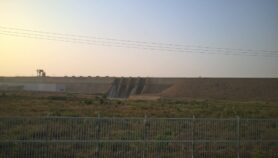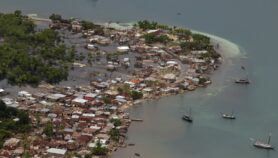By: Ochieng’ Ogodo
Send to a friend
The details you provide on this page will not be used to send unsolicited email, and will not be sold to a 3rd party. See privacy policy.
[NAIROBI] African countries are experiencing adverse environmental and social legacies from mining that should be addressed, a meeting has heard.
According to the meeting, scientists should assess the situation, provide credible scientific explanations and advise policy makers on the necessary actions.
Ann Therese Ndong-Jatta, director of UNESCO Regional Office for Eastern Africa, says that the continent is endowed with huge potential in mineral wealth but opinions vary on the importance of mining as a source of wealth creation and protection of the environment and the health of communities.
“In many African countries, the environmental and social legacies of mining have become heavy burdens because for a very long time, they were poorly attended to or simply ignored by the mining industry and governments,” she told participants at a meeting held in Kenya last month (10-11 April) on environmental and health impacts of abandoned mines in Sub-Saharan Africa.
“Whether in Cameroon, Ghana, Nigeria or South Africa, the problem is the same and unless addressed, we are sitting on a time bomb.”
Veronica Ngure, Laikipia University
For instance, South Africa has challenges in addressing the negative legacies of decades of mining activities. In the Democratic Republic of Congo the situation is alarming to an extent where the environmental and social legacies of mining is a major obstacle to building the necessary trust that a sustained economic growth needs, Ndong-Jatta added.
The meeting brought together 25 scientists from Cameroon, Cote d’Ivoire, the Democratic Republic of Congo, Ghana, Kenya, Mali, Namibia, Niger, Nigeria, Senegal, South Africa, Tanzania, Uganda, Czech Republic, France and Switzerland to map and assess the environmental and health impacts of abandoned mines in Sub-Saharan Africa.
“It is important to assess rigorously and precisely the situation because in many countries, we do not know the real extent of pollution in soil and water,” says Ndong-Jatta. “We do not know the impact of this pollution on the food chain either, and finally, we do not know the consequences on the health of both animals and humans.”
Abraham Mwesigye, an environmental scientist from Uganda’s Makerere University, says that Africa has many abandoned mines that pose environmental contamination.
“Mining in Africa is mainly of mineral and metal such as iron, copper, cobalt, nickel and cadmium, which are environmental contaminants,” he says.
People living in mining areas, he explains, produce food from contaminated soils, use water full of mining toxic waste and many have diseases such as cancer, ulcers and other stomach complications.
Mining makes agricultural production poor because chemicals that enter the soil reduce fertility and productivity. Mining also release chemicals such as mercury into plants, making them unfit for consumption.
“But every day people eat contaminated foods, and drink toxic water,” Mwesigye tells SciDev.Net.
Science, therefore, has a role in generating knowledge as in many cases people are not aware of mining dangers. “Our role is to do research, generate findings and present them to people, policymakers so that they react to the findings,” he says.
Veronica Ngure, an environmental health scientist and a lecturer at Kenya’s Laikipia University, who has done research at the Macalder gold mines in western Kenya, says abandoned mining’ tailings – what remains after gold extraction – have major health implications such as retarded growth and brain development of children exposed to lead.
She adds that some chemicals such as cadmium have been associated with lung diseases. “We have a big problem which is not being addressed. When people are exposed to all these elements through the food chain, [they] in the long run will suffer from chronic diseases associated with environmental pollution,” Ngure explains.The negative effects of mining tailings are affecting many parts of Africa as their toxic elements get into the water systems and soils and eventually the food chain.
“Whether in Cameroon, Ghana, Nigeria or South Africa, the problem is the same and unless addressed, we are sitting on a time bomb of [mining-induced] diseases,” Ngure tells SciDev.Net.
This piece was produced by SciDev.Net’s Sub-Saharan Africa English desk.














